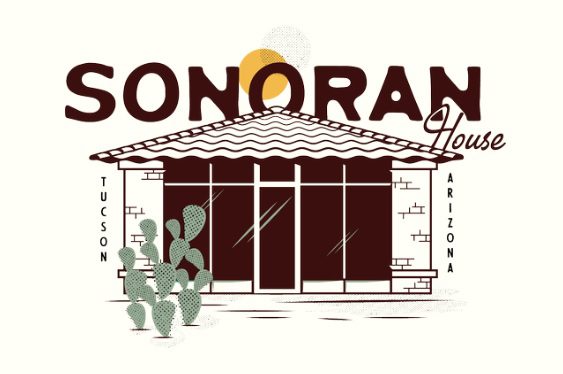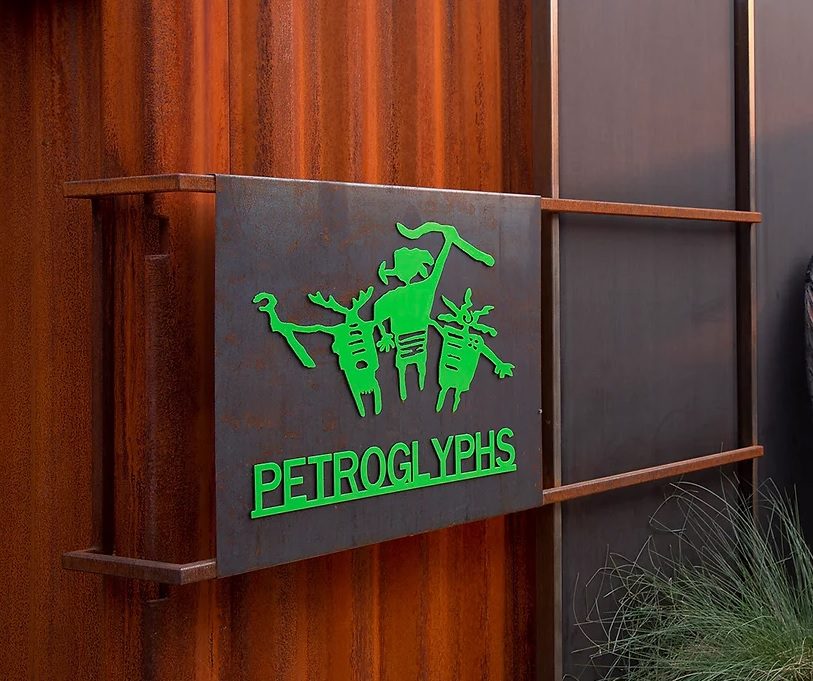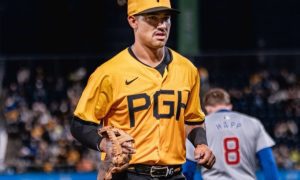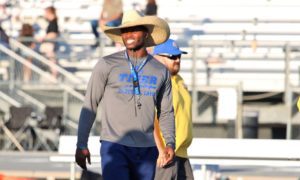If Sam Khalifa could sit down with Nick Gonzales and offer him a word of advice, he would draw from them starting their major-league aspirations as No. 7 picks overall in the MLB draft by the Pittsburgh Pirates as shortstops from Tucson.
“That’s pretty much our similarity right there because everybody has different experiences,” Khalifa told me. “Pittsburgh must like picking Tucson kids at No. 7.
“The draft pick is sort of irrelevant because once the draft’s over, it’s really about opportunity at that point. Nick has obviously worked for being in this position, but from here forward, it’s about getting that opportunity.”
Khalifa’s name is synonymous with Tucson’s rich baseball history. For nearly four decades, he was above all other local high school players to be selected in the MLB draft.

Tucson High legend Eddie Leon’s distinction as the city’s highest selected player at No. 9 overall by the Minnesota Twins in the MLB’s first draft in 1965 was topped by Khalifa’s selection in 1982 out of Sahuaro High School.
Khalifa did not get the chance to watch Gonzales, a Cienega grad, match his honor as the No. 7 overall pick by the Pirates yesterday, but he heard about it from his sister this morning and soon found that his name was in national stories from here to Pittsburgh.
“They’re probably wondering now in Pittsburgh, ‘What happened to Khalifa?'” he said with a laugh.
Khalifa leased a taxi and was part of Sahuaro’s baseball coaching staff as a volunteer in recent years. Now, at 56, he can be seen on Tucson’s golf courses and enjoying where he has called home since his high school days.
He is about as legendary of a Tucson high school athlete as anyone, especially as a baseball player.
When Sahuaro won the 1982 state title with Rodney Peete as the starting pitcher against Phoenix Brophy Prep, Khalifa made a highlight-reel play tracking down a hard-hit grounder on the edge of the grass, leaping, twisting his body and throwing out the batter at first.
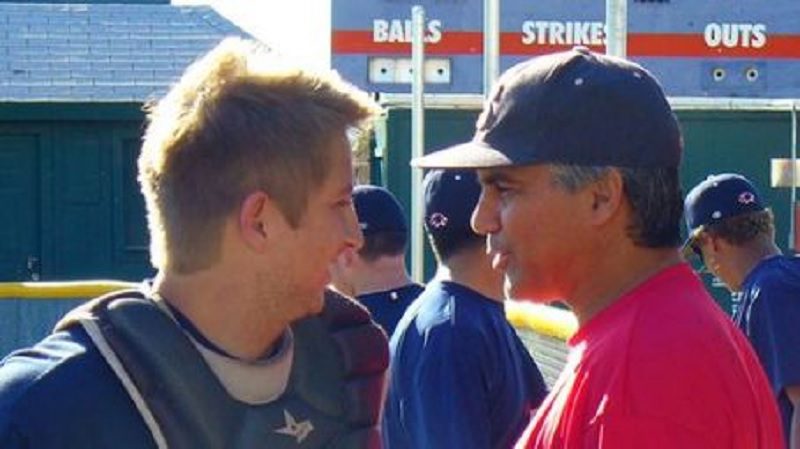
“The other players think he’s the Lord himself,” the late Hal Eustice, Sahuaro’s coach, told the Arizona Republic about Khalifa after the game. “He’s made plays that I never thought a high school player could make. It just leaves me shaking my head.”
Coaches have that reaction now of Gonzales, who at 5-foot-10 and 190 pounds, has remarkable hitting ability with power. He batted .448 through the first 16 games of the shortened 2020 season with New Mexico State, ranking first nationally in home runs (12), runs (28), RBIs (36) and total bases (67).
Khalifa learned of Gonzales’ improbable climb from not being recruited out of Cienega, walking on with the Aggies and becoming a two-time All-American and the Collegiate Baseball National Player of the Year this season.
“I want to wish Nick good luck,” Khalifa said. “I’ve read a little bit about his story. He had to overcome a lot. Hopefully he can continue to develop. Each stage is different.
“Once you get drafted, you start fresh. You can either overachieve, you can underachieve, or you can do something in the middle, but each step is a new challenge.”
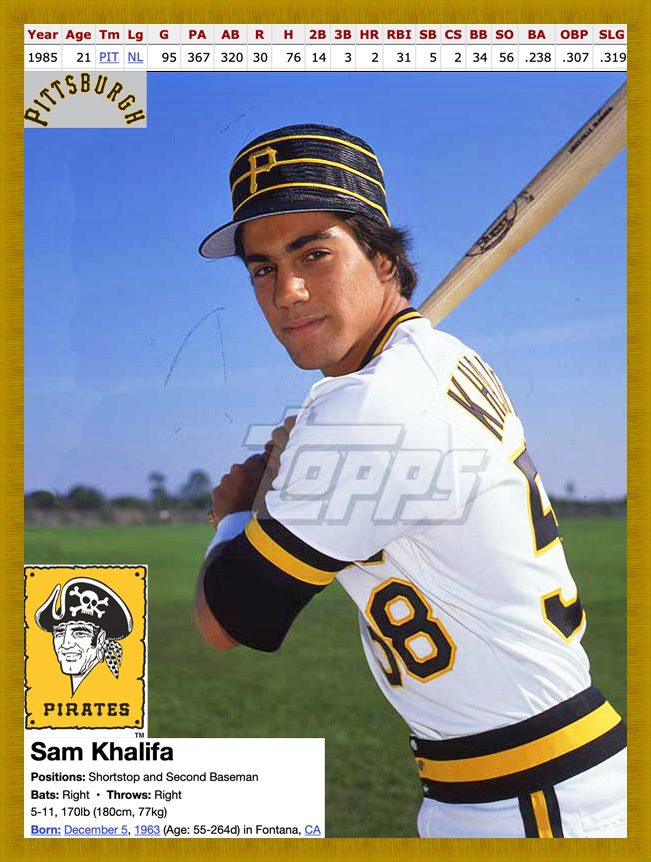
When hearing of Gonzales’ reported signing bonus of close to $2.5 million, Khalifa said, “Times sure have changed,” from when his bonus was $100,000 in 1982.
“Back then, that was relative, though,” he added. “Shawon Dunston was the No. 1 pick and he got something like $150,000 (actually $135,00). Nobody got more than $200,000.”
The Chicago White Sox’s third-round pick Kenny Williams had the most lucrative signing bonus in 1982 at $165,000 because Chicago wanted to make sure he stuck with the team while he pursued a football career at Stanford.
The journey to becoming a first-round draft pick was literally a long one for Khalifa, the first Egyptian to play in the Major Leagues.
He lived in various places after he was born in Fontana, Calif., where his father, Rashad Khalifa, obtained a Doctor of Philosophy at California-Riverside. Sam relocated to the Middle East on two occasions to Egypt and Libya as a child because his father served as a specialist for those countries in agricultural or horticultural science. The family also lived in St. Louis.
Before moving to Tucson, where his mom Stephanie is from, they lived in Tripoli, Libya. At 12 years old there, he attended the Oil Companies School, and played baseball on a sand field with the children of Americans employed by oil companies.
A mash-up of Nick Gonzales quotes on a press conference Zoom call with Pittsburgh/local media.
The greatest player in @NMStateBaseball was taken 7th overall by the Pirates in Wednesday night’s #MLBDraft. pic.twitter.com/TbXcekkqNV
— Colin Deaver (@ColinDeaverTV) June 11, 2020
Sam, who signed a letter of intent to play baseball at ASU before the 1982 draft, was a natural athlete who also excelled as a quarterback at Sahuaro.
After three seasons climbing from rookie-league Gulf Coast (Fla.) to Triple-A Hawaii, Sam made his MLB debut on June 25, 1985, replacing the injured Johnnie LeMaster. He was the sixth player to start for the Pirates at shortstop during the 1985 season.
Sam showed promise right off the bat, literally, recording six hits in his first 11 at-bats. He played in 95 games with the Pirates and batted .238, with 14 doubles, that season.
“I worked very hard to get to the big leagues, and from what I’ve read about Nick, he’s worked hard to get where he is at,” Sam said. “He just has to keep going and maintain it and hopefully things can go his way.
“You ask me what I would tell him — try to stay away from slumps. I was there (in the majors) when I was 21 and that’s the same age as Nick is now. The first year with (manager) Chuck Tanner, I did well, and that success helped me relax. Knowing I’m on a short lease, my second year, I had Jim Leyland, a new manager, a new staff, and I felt like they were reevaluating me. They knew nothing about me and I felt I had to reprove myself all over again.”
In 1986, Sam platooned at shortstop with Rafael Belliard and he batted .185. He was sent down to the minor leagues and played for the Vancouver Canadiens of the Pacific Coast League in 1987. Pittsburgh decided to sign Jay Bell from the Indians as their shortstop. Sam split the 1988 season with the Harrisburg Senators of the Eastern League and the Buffalo Bison of the Triple-A International League.
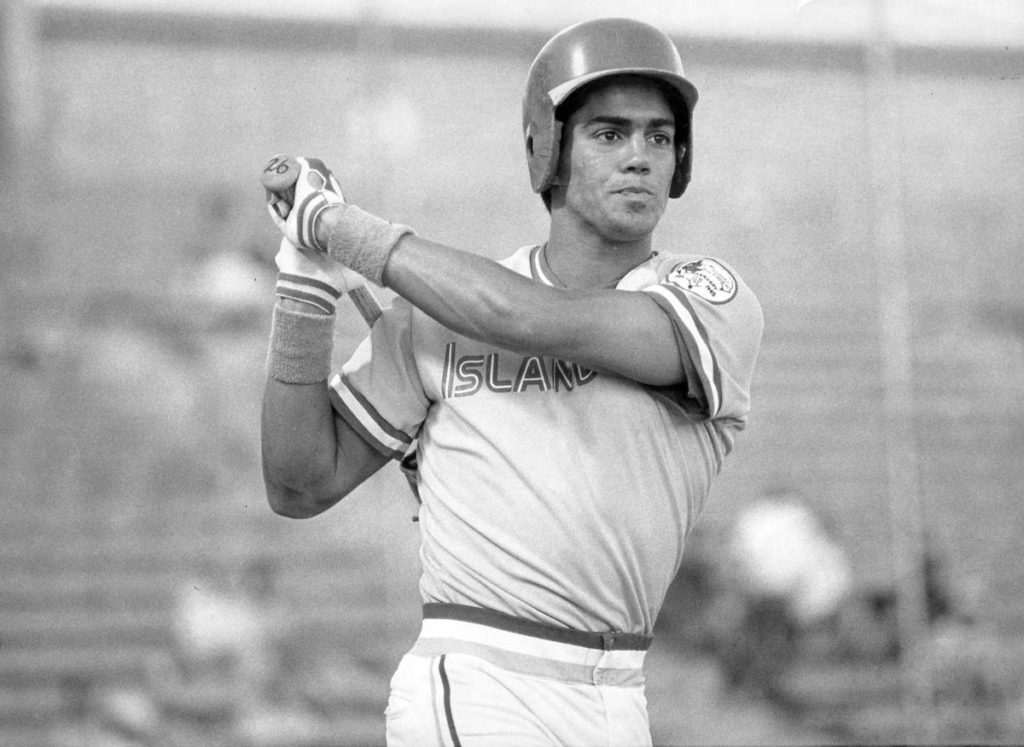
With Buffalo again in 1989, he was five minutes late for the team bus. It left without him although he informed the trainer he was on his way. Frustrated, he returned home to Tucson.
“I felt pressure in my second year at Pittsburgh because I didn’t get off to a good start and I wasn’t hitting well,” Sam said. “I had about 150 at-bats and they sent me back down to Triple-A. When that happens — and noboby knows what’s going to happen to Nick — but as a player, I don’t want to say you fold, but you sort of do.
“All the players that get sent back down to the minors, they don’t perform as well as they do in the big leagues. In the minors, nobody’s around, nobody cares. You’re not going to be the same guy.”
A few months after leaving Buffalo, Sam’s life took a devastating blow when his father was assassinated on Jan. 31, 1990, at the Masjid of Tucson, a mosque where Muslims could worship at the intersection of Sixth and North Euclid by the Arizona campus. Trinidad and Tobago national Glen Cusford Francis was arrested in Calgary some 19 years later in connection with the murder. Francis was convicted in 2011.
Joe L. Brown, the former general manager of the Pirates, had arranged a tryout for Sam with the San Diego Padres but the murder of Sam’s dad happened right before that tryout. That set him back. His baseball career was over.
“It’s been tough,” Sam said. “I generally enjoyed my time at Pittsburgh except for (the bus) incident and what happened in 1986. When my father passed … I am still hurting from it. You never get over that.”
Sam’s experience with baseball gives him a keen insight on player development.
After earning a college degree, Sam served as a volunteer assistant at his alma mater, Sahuaro, for about six years. One of his pupils was Alex Verdugo, the former Los Angeles Dodgers prospect who was traded after last season to the Boston Red Sox.
“I’ve read where Nick says he enjoys to play. It’s going to be more competitive as he moves forward,” Sam said. “I coached Alex, who was a good high school player. He got drafted high (second round in 2014). He did really well. He exploded. You can do that.
“There’s going to be ups and downs. I really don’t know a lot about Nick, honestly. Obviously, it seems like he’s really gotten better as a player. As long as he continues to improve, he’ll be fine.”
The business end of baseball can be brutal as Sam discovered in 1986 at Pittsburgh when he was sent back to Triple-A despite being a first-round draft pick.
Sam brought up the example of Phoenix native Cole Tucker, a shortstop who committed to play at Arizona before the Pirates selected him in the first round in 2014. Tucker finally made his big-league debut with the Pirates last year but played most of the season behind former Arizona standout Kevin Newman, who was drafted in the first round by the Pirates a year after Tucker.
“They now have three shortstops drafted in the first round,” Sam said. “Maybe they will move Newman to third base. They played him at second base too.
“The thing about Newman and Nick is they developed in college. I was forced to develop in the minor leagues, and I did. You can say that Nick compares more with Newman because they went to college.”
Being the highest drafted high school baseball player from Tucson along with Gonzales is “something to be proud of,” Sam said.
“I wish I would have had a longer and better career,” he added. “I don’t think my statistics reflected my abilities. That’s the frustrating part when you compete your whole life, there’s a time you can’t do that any more. That’s really tough.
“I just wish Nick does not have those kind of struggles. I’ll be pulling for him.”
FOLLOW @JAVIERJMORALES ON TWITTER!
ALLSPORTSTUCSON.com publisher, writer and editor Javier Morales is a former Arizona Press Club award winner. He is a former Arizona Daily Star beat reporter for the Arizona basketball team, including when the Wildcats won the 1996-97 NCAA title. He has also written articles for CollegeAD.com, Bleacher Report, Lindy’s Sports, TucsonCitizen.com, The Arizona Republic, Sporting News and Baseball America, among many other publications. He has also authored the book “The Highest Form of Living”, which is available at Amazon.
